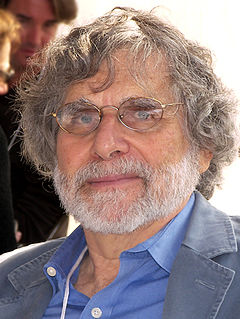A Quote by Elliott Colla
The stories that confirm that bigger story are brought in and easily digested. But there's another set of stories that are always there, which do not confirm, but which complicate and contradict what we think we already know. And I'm always attracted to that. There doesn't seem to be much of a market for it. Translated books rarely get reviewed in the press. Books or poems or works of art that don't seem to have a corresponding style or figure or theme, obviously they're hard to digest.
Related Quotes
One of the stories I love is how Gutenberg’s printing press set off this interesting chain reaction, where all of a sudden people across Europe noticed for the first time that they were farsighted, and needed spectacles to read books (which they hadn’t really noticed before books became part of everyday life); which THEN created a market for lens makers, which then created pools of expertise in crafting lenses, which then led people to tinker with those lenses and invent the telescope and microscope, which then revolutionized science in countless ways.
I'm an optimist and my heroines seem to be that way, too. It's too much work to be cynical and distrusting. That doesn't mean I create perfect stories and perfect people, however. What this means is that my stories are resolved in a manner that leaves the reader with a feeling of hope and happy expectation . . . and wanting to reach for another one of my books.
I have never been able to understand the complaint that a story is "depressing" because of its subject matter. What depresses me are stories that don't seem to know these things go on, or hide them in resolute chipperness; "witty stories," in which every problem is the occasion for a joke; "upbeat" stories that flog you with transcendence. Please. We're grown ups now.
I wish - I wish instead of just recommending these books, I could set them down at your doorstep. The collected stories of John Updike, the second volume of T.C. Boyle's collected stories, and Stanley Crouch's book about the rise and times of our genius saxophone player Charlie Parker. These are deep books, books that you can get lost in.
What's your story? It's all in the telling. Stories are compasses and architecture; we navigate by them, and to be without a story is to be lost in the vastness of world that spreads in all directions like arctic tundra or sea ice. To love someone is to put yourself in their place, we say, which is to put yourself in their story, or figure out how to tell yourself their story. Which means that a place is a story, and stories are geography, and empathy is first of all an act of imagination, a storyteller's art, and then a way of traveling from here to there.
He would talk to them of stories and books, and explain to them how stories wanted to be told and books wanted to be read, and how everything that they ever needed to know about life and the land of which he wrote, or about any land or realm that they could imagine, was contained in books. And some of the children understood, and some did not.
Writing ought either to be the manufacture of stories for which there is a market demand - a business as safe and commendable as making soap or breakfast foods - or it should be an art, which is always a search for something for which there is no market demand, something new and untried, where the values are intrinsic and have nothing to do with standardized values.
Comic books are just a way to show a story. Then there are the movies, and television and exhibits like this that take the stories and make them seem so realistic. In the comic book, you're just reading a story - hopefully a good, exciting story that whets your appetite for all of this stuff to come.
































